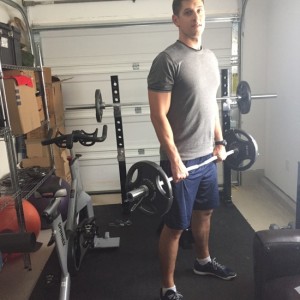112: Tips for anxious flyers (from a Pilot)
Sharing tips for my friends who are scared of flying, nervous, and anxious about air travel.. just like yours truly. I reached out to the Pilot to write a guest post, and am also sharing some of the tips I’ve picked up!
*Update: 10/6/22: Thank you so much for your overwhelming feedback on this post! So many of you have shared it with friends, too. I asked the Pilot if he’d help me turn it into a podcast episode and we recorded this episode with his tips and advice. It can be reassuring to hear a pilot’s voice telling you it will be ok, especially if you’re currently on an airplane or about to travel. 🙂
You can check out the full episode here:
Tips for anxious flyers (from a Pilot)
Friends out there know I hate to fly. They also find it ironic and hilarious that my husband is a pilot who loves to fly. All of these years later, he still gets disappointed when a flight is canceled. He still recaps his best flights to me (even when I zone out at the acronyms and hand signals #adhd). When we fly together, I feel so much less stressed. I know he could handle things if something went awry, and I can nudge him when I hear a sound and he tells me what it is. However, when I fly alone, I spend pretty much the entire time clutching the armrest, sweating profusely, and saying Hail, Mary over and over in my brain. (Unless there’s zero turbulence and I can read a book.)
On my last flight with the girls to Hawaii – it was just me solo- I was feeling particularly scared about flying over the ocean. The worst part is that I have to play it cool for them because I don’t want them to be nervous, too. The kids are traveling professionals; they watch a movie or play the Nintendo Switch and eat lots of snacks while we fly.
A couple of things helped me on this flight:
– Before boarding, I checked out the radar to see how many planes were in the air at that moment. It made me realize that my flight was so insignificant to the thousands that take off and land each day.
– Got this tip from the fear of flying Reddit page: pretend like you’re on a bus traveling safely from point A to point B. This helped so much!!
– I made sure I had lots of things to keep me distracted. I read an entire book on the way to Hawaii and it kept me engaged so I didn’t have time to think about the fact that I was in a metal box in the sky.
– Good ol’ CBD. I have it with me, and even if I don’t need to take it, it’s comforting to have on hand. (This is the one I use. Full transparency, I used to partner with them and am still an affiliate. My code FITNESSISTA still works for a discount!)
I asked the Pilot if he would help me with a guest post about tips for my fellow nervous flyers, and here’s what he wrote!
My real-life Top Gun 😉
Tips for anxious flyers (from a Pilot)
Good morning, friends. The Fitnessista has her hands full this morning, so the Pilot’s here with some tidbits to help anxious flyers. Let me begin by saying that these aren’t tips on how to be more zen during air travel. Suggestions for the best soothing music to listen to and which decaf herbal tea will best calm your nerves is a bit out of my lane. However, I’m happy to share a little peek behind the curtain of what’s happening during your flight to make you feel a little more at ease. If you’ve got nerves of steel and turbulence doesn’t bother you, then at least you can share this with your terrified seatmate who is white-knuckling the armrest on the wild ride that is the final approach into Vegas in the summer.
Emergency preparedness and simulations
I’ve flown small, maneuverable aircraft for the military and large, heavily-automated aircraft for a major airline. I’ve seen a lot over the past 19 years of professional aviation, and while there have been times when something unusual occurred that I hadn’t previously experienced, nothing surprised me. That’s because the training is just that good. Simulator events that train us to execute emergency procedures, on both the mil and legacy airline side, are nothing but a series of calamities, one after another, often compounded upon each other.
The conditions such as weather and performance factors are often worst case scenarios. However, the expectation for the behavioral response in managing these disasters is calm and methodical. Pilots are faced with a countless variety of emergency situations until working the problem(s) becomes second nature. By the time I lost an engine in combat in 2009, it almost felt too easy because nothing else was going wrong. Fortunately, most of the time, we’re up there just monitoring the ride, sipping coffee, and planning the next phase of the flight (while enjoying the view, of course).
The real deal with turbulence and weird noises
So that’s the human factors side. Let’s talk about the aircraft themselves. What’s up with all those noises and bumps along the way? First of all, turbulence, those bumps you feel, are fine. They’re not going to hurt the plane. Pilots are constantly talking to air traffic control about what kind of “ride” the flight in front of it is having, and if another altitude is better, but that’s typically just for passenger comfort. The aircraft itself can take quite a beating. It’ll fly just fine through heavy rain/snow. It can be struck by lightning. It can fly on one engine to a suitable airport for a safe landing. She’s an engineering masterpiece.
So, let’s talk about the weird noises. Chances are, if you’re an anxious flyer, you’re hyper aware and pick up on everything little sound. I’m here to tell you, it’s okay. Engine spool up and deceleration are normal for all flight regimes, including immediately after takeoff. When you hear a sound like the wind is getting slightly louder and the airplane shakes a little bit, that’s just the speed brakes coming out.
Speed brakes are generally used to meet speed restrictions on approach when the flight computer didn’t quite perfectly calculate the descent point or when you need to slow down to put the flaps and gear out. I’ve used them on virtually every flight. Obviously, the landing gear coming down can be fairly loud. The loud clunk you hear afterwards is the gear doors closing. All the other weird sounds are likely just flight control surfaces like flaps, slats, and trim. No biggie.
Go-arounds
There are some things outside of a normal flight that can seem concerning on the surface, so let’s talk about those. Go-arounds. When the airplane appears to be ready to land, but at the last minute, the engines power up, and you’re pushed back in your seat as the aircraft begins to climb away. Yikes – that’s got to be bad right? Nope. Someone just made a very smart decision.
A go-around can occur for a myriad of reasons: previous landing aircraft too slow to clear the runway (or ATC didn’t provide proper spacing), the crosswinds exceeded their limitation, the aircraft wasn’t properly setup to land by a certain point, the pilots didn’t see required visual references to land due to weather, etc. The point is, someone checked their ego and made the difficult (but correct) decision to go around and that’s the kind of judgement you want on the flight deck.
It’s better to do that 5 times in a row than push a landing that doesn’t need to happen there. Pilots plan the fuel so that after a certain point, if they couldn’t land, they have enough fuel to get to their alternate destination which will have better conditions for landing. This may require the pilots to hold or orbit in one place for weather to clear and coordination to be completed, so don’t let that “idle” time worry you either.
Anyway, that’s the short list for now. I hope it gave you some reassurance about what’s happening the next time you fly. If you have any questions, leave them in the comments or message Gina, and I’ll do my best to answer them.
Until next time.
– The Pilot
Resources from this episode:
Check out the Dr. Cabral 7-day detox here! We’re doing this as a community on October 17th (so many of you have signed up already! YAY) and you can use the code FITNESSISTA20 for 20% off. If you see this as a later date, you can absolutely still join in at your own time!
Thank you so much for listening and for all of your support with the podcast! Please be sure to subscribe, and leave a rating or review if you enjoyed this episode. If you leave a rating, head to this page and you’ll get a little “thank you” gift from me to you.















This was such a great post! I get extremely anxious/scared before and during flights. I do not like to fly. I do it…because most times it’s the logical choice for travel! I find that I fly better when my husband and girls are with me, too, but I am a quiet basket case the entire flight (also trying to be “normal” for my girls).
The second the wheels touch the ground at our final destination, I rejoice
Two things…can you explain the loud “beep/dings” during the flight. I’ve had a pilot friend explain before, but I can’t remember. Those always scare me because they are SO loud.
Also, I absolutely feel much more at ease when we have a talkative, interactive pilot throughout the flight. For some reason I feel like I can exhale when they are speaking to the passengers! I love it when they point out specific landmarks down below and give us updates during the flight, etc.
Thank you for the post!! I always appreciate any tips for frightened flyers
Hey, Erin. I think it’s great that you put on a brave face for your kiddos. It sets a great example for facing your fears with poise. Probably makes them feel a lot better, too. Most of the dings you hear are advisories for the crew/flight attendants (passing through 10,000 ft, on approach, or the flight crew requests something). If can also advise passengers that the seat belt sign illuminated. There might be some variety in meaning between different airlines.
I totally get the comfort from hearing from the pilots. Gina is the same way. I imagine it stems from feeling more calm because the crew sounds calm. A little bed-side manner goes a long way up there. It’s nice when it’s a little off-script, too.
This was so great to read! Been following your blog since 2009 Very anxious flyer here and while flying with my engineer husband is fine, alone I’m freaked. It was great to read this, super helpful, and would love more posts like this from The Pilot!
So helpful! I am flying today and will try to keep this in mind. Thank you!
Thank you, Pilot for the tips!
My son and I nearly messed up a landing. He was 3 at the time, and we were coming home from a two-week trip….so his system was a little off. During the flight, he declared he had to poo NOW, so I took him to the bathroom and he proceeded to break all records (no details but it ended up being massive and taking a long time). I kept peeking my head in, “are you okay bud?” and he would just say, it’s a stubborn one mom. OMG. The flight attendant was in hysterics running up and down the aisle. She went to my husband (I’m not sure why or what he could do), but she said she was going to have to tell the pilot. I was finally able to get my little guy back into his seat, but it was crazy. So, it ended up being a little funny, hectic, and a little embarrassing. It makes me wonder though..do passengers often interfere with the course of business during flights?
Hi, Mandy. Compared to some of the issues the flight attendants deal with, that’s pretty minor. There are a lot of crazy videos out there of people losing it and causing the plane to divert or go back to the gate. My favorite is actually a reenactment of a lady who was pretending to breastfesd a baby, but was actually breastfeeding a cat (a fake cat). The argument was epic and video is hilarious. It’s PG, too.
Such a good insightful post.
My Dad was an aircraft engineer so I grew up around airplanes. But just like Gina I’m no fan of flying either! If I could change one thing about myself that would definitely be it. I guess we all have our little qwerks!
I’m not a nervous flyer but this was so interesting to read! I’ll definitely be sharing with my nervous flyer friends. Sometimes logical explanations like this are more effective than telling someone to sniff some essential oils and meditate
I didn’t died to be a nervous flyer but I am in my older age!! Wish you could be my pilot : ) Agree with the above commenter that the more they talk and the “nicer” they sound the more I’m at ease!
This is gold. I have a question. Is it true that that 80% of crashes occur in the minutes after takeoff and before landing? So those are the most “dangerous” parts of the flight? I heard that somewhere and now I get most nervous during those times.
Also, if a wing or part of a wing breaks off, can the plane still safely fly or land?
Thank you Pilot!!
Great post! I’m am working on my Private Pilots License (I fly a 172 Cessna) I’ve Solo’d and it is a lot to learn! It takes a lot of training for me as a Private Pilot, practicing emergency situations. The Commercial Pilots have so many more hours of training and experience, so I feel really safe around experienced pilots and know that they have all the training. It is so much fun flying!
Air Force wife here too, and I think it’s a great joke from the universe that I don’t like to fly and my husband just gets calmer and sleepier the worse the turbulence gets when we fly together 🙂 Thank you for the great tips and clarity, and I too appreciate when the cockpit soothingly tells the passengers that there will be turbulence soon, or soothingly says just about anything 🙂 I’ve also had another pilot tell me the wings can basically bend in a U shape before breaking (when they are being safety tested) so I think of that too for reassurance…
Thank you for this! I have gotten increasingly nervous during flights the older I’ve gotten (and the more children I’ve had). I hate even very mild turbulence and am always sure the plane is going to shake apart. So many irrational fears, but generally telling myself that if the flight attendants are calm, then there’s nothing to worry about seems to help. And I like your point Gina – there are thousands of flights going at any time, and the odds are my flight will be just fine! Always glad to make it back to earth!
As a nervous flyer, this info is very helpful. Thank you! A long time ago, a friend told me that there is actually a ding or chime that means the plane is going down. Is this true?? Every time I hear a ding now I stare at the flight attendants’ faces trying to determine if they look scared lol
At my airline, a series of hi-lo chimes would indicate an unplanned landing (or planned emergency landing). If it’s just one chime, you don’t have anything to worry about. 🙂 But it’s always good to watch the FA – that’s what I always tell nervous flyers.